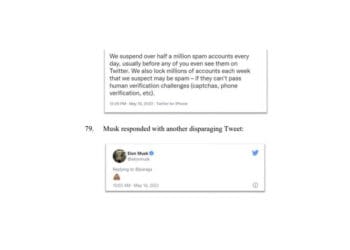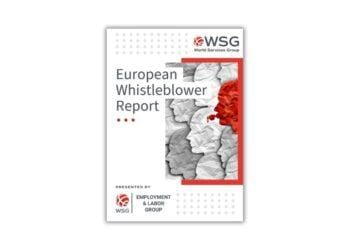A single tweet or viral video can do irreparable reputational harm to a company. GAN Integrity’s CEO, Neil Lustig, discusses the democratization of ethics and how it impacts companies – take, for instance, the billions in fines Facebook faced recently.
There are virtually no closed doors in businesses anymore. We have more transparency into businesses than ever before because of the increasing globalization of our economy, the fast-paced world of social media and the growing support and protection of whistleblowers.
A single tweet can reveal a billion-dollar company’s unethical actions to the world. For example, if United passengers hadn’t posted videos to social media when employees dragged a passenger off an overbooked flight, these horrific actions may have stayed on the plane. An empowered whistleblower can give the public – and law officials – a front row seat to overseas conflict of interest or day-to-day executive misconduct. Even a company with good intentions and solid ethics practices can be hoisted into the spotlight when a few bad actors take advantage of gaps in oversight and loose compliance programs.
Whatever the case may be, the moment unethical practices are exposed to the public, the most important thing becomes how the company reacts and how fast they do so – that is, if they do it at all. The answer to this usually comes down to three things: a company’s policies and procedures, whether it has a compliance infrastructure that ensures all employees are informed and empowered to act and the company’s values, which influence the two former.
Technology can introduce an unwanted window into the unethical practices of businesses, but it also has the ability to protect organizations from risks and ethics violations. Here’s a crash course on three things organizations must implement to stay forthright in today’s ever-growing democracy of ethics.
1. Digitalization of Compliance Communications
Just because technology is available doesn’t mean that all companies have adopted it. Some of the world’s largest organizations will be the last to transition to automated systems and processes from their manual operations, many of which expose them to risk.
One of the most imperative components of this digital transformation for organizations is a centralized system that houses corporate policies and practices that govern everything from tardiness, use of company equipment and how much to spend on a client gift to screening partners overseas, enforcing sexual harassment training and safeguarding consumer data.
Beyond simply storing these things, they’ll need the ability to effectively update their documentation to keep it current as company guidelines – and state and federal regulations – unfold.
Take, for example, employment policies. In the last 18 months alone, a number of states have banned NDAs relating to sexual harassment in employment contracts. Others have introduced restrictions on inquiring into past salary histories or offering paid leave. Companies that operate in multiple states must ensure that they understand the nuances in each.
Now multiply all of this across departments, regions, regulation types and so on. Keeping up with and acting on these changes manually is a full-time job – for an entire team – and significantly increases the possibility of error. And we all know, not being familiar with laws – whether set by the government or a corporation – is an inadmissible excuse when caught violating them.
2. The Culture and Methods of Self-Policing
Once a centralized system is in place to manage policies, the next priority is enforcing them. This can only be partially solved by technology. Technology introduces a completely new approach to tracking whether employees have reviewed corporate policies that steer companies away from risk and have agreed to abide by them.
Technology should also support employees in reporting misconduct and unethical behavior they’ve witnessed internally and in feeling confident they won’t be retaliated against for doing so. Prior to the digital transformation of whistleblower hotlines, employees put their reputations and paychecks on the line to report ethically questionable and/or potentially damaging behavior. Companies have since introduced secure online portals where employees feel empowered to speak up when they need to.
The downfall of technology? It can’t enforce policies or automatically make companies ethical. Companies need policies in place that inspire action against an unethical or high-risk behavior. Without these in place, whistleblower reporting doesn’t mean much, because there are essentially no rules.
Such a situation explains why a company like Uber, whose executives were publicly exposed for rampant discrimination and sexual harassment two years ago, wasn’t able to act quicker than it did. Theirs wasn’t the case of a single person gone awry; it revealed questionable ethics and values companywide and a lack of policies and technology necessary to stop high-risk behavior in its tracks.
3. Updating the Business’s Approach to Due Diligence
Sizable organizations that work with international business partners are at risk when they don’t conduct the appropriate background checks on these partners. Whether their local partners are on the ground, managing relationships in countries or sourcing supplies for manufacturing, they’re an extension of the head organization. If these third-party partners are engaging in risky behavior, the organization behind them can be held accountable for all their actions and be exposed to legal risk.
Ethics has been democratized, but data has too. There are technology solutions that can run extremely comprehensive background checks on these international companies in a matter of minutes. These checks result in lengthy, high-accuracy analyses, which initiate higher levels of due diligence, to help organizations inspect every part of potential third-party partners and make the best decision in choosing the ones they will work with.
Today, the public has visibility into organizations like never before, thanks to media channels and technology. Unethical behavior and corporate misconduct can be revealed to the world in a single minute, and it can destroy a company’s reputation just as fast. Just as technology has the power to open up a company to the public, it also has the ability to empower organizations to remain above the fray in a rising democracy of ethics. Which fate a company encounters rests entirely on the prioritization of ethics and compliance within the organization.



 Neil Lustig is CEO of
Neil Lustig is CEO of 





